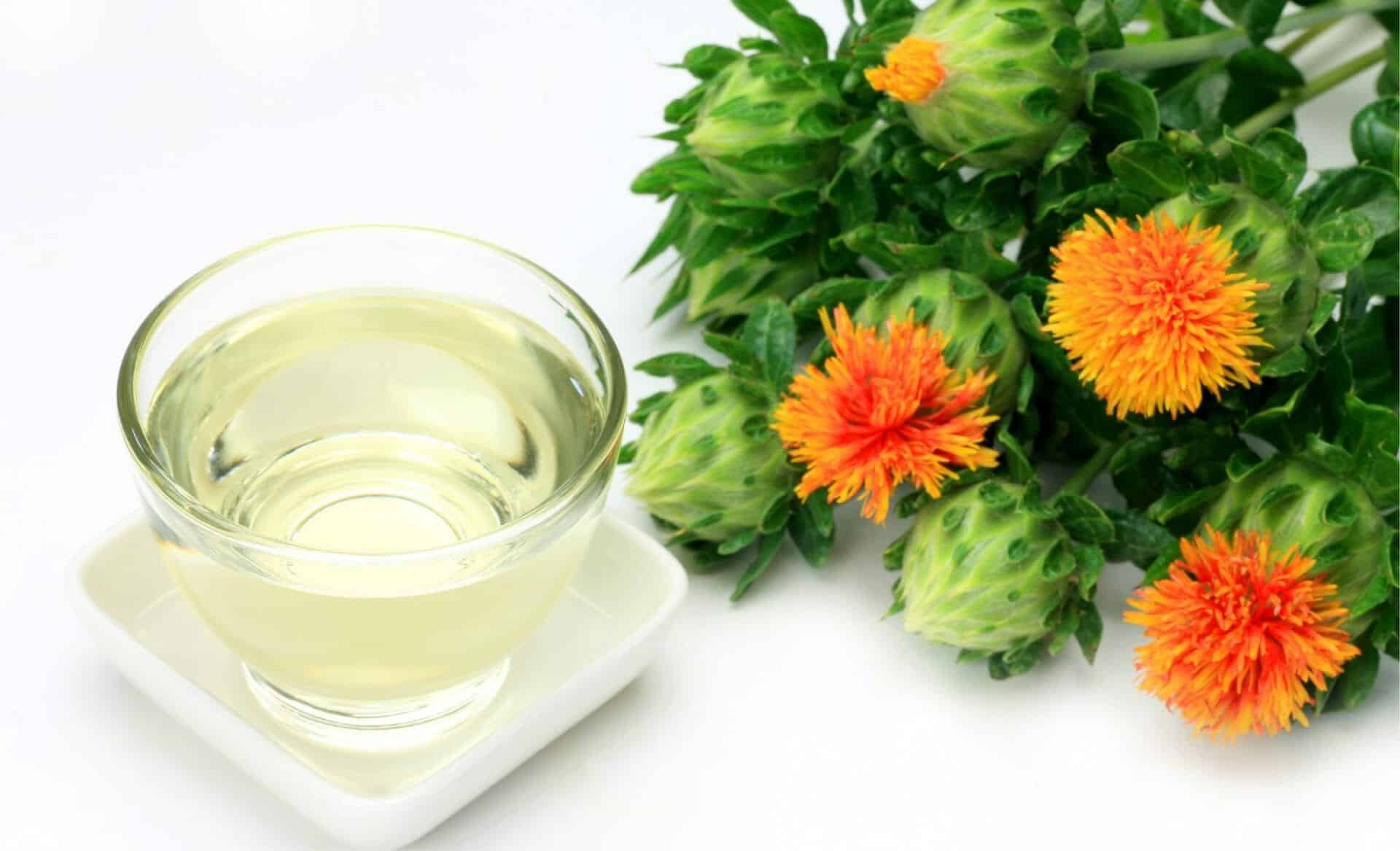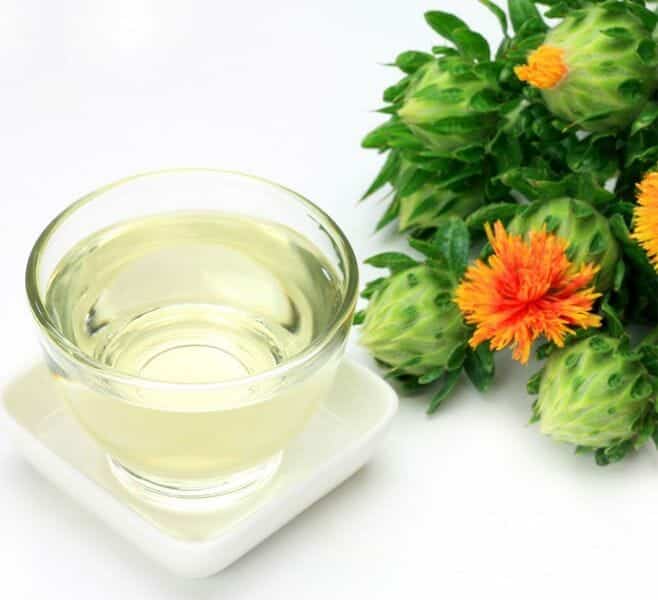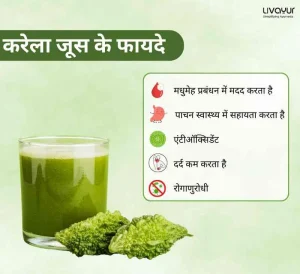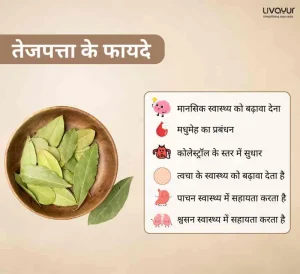
Kusuma Oil is an Ayurvedic formulation derived from the bright yellowish or orange floral extracts and seeds of Safflower (Carthamus tinctorius L.). Safflower belongs to the family of Asteraceae or Compositae. In India, Safflower is referred to as Kusum. Therefore, Kusuma Oil in English is called Safflower Oil. [1] As the flowers from this plant look similar to the saffron strands, this herb is also given various names such as Thistle saffron, False Saffron, Dyer’s Saffron, etc. This is a multipurpose herb, and in the realm of Ayurveda, Kusuma oil is touted for its many Kusuma oil benefits. However, those with Pitta dosha must take or use this oil in moderation. [2]
According to Ayurveda, the Vata-Pitta diet should not include Kusuma oil. The Kapha-Pitta dosha diet may include Kusuma oil, but it should be used in moderation. The Vata-Kapha diet must definitely include Kusuma oil. [5] Researchers have attached much importance to Kusuma or Safflower as every part of this plant is useful and an alternative oil source.
Oil extracted from Kusuma plant seeds has high linoleic acid content, a healthy unsaturated fatty acid. [1]
Given below is the chemical structure of the healthy linoleic acid:

In this article, we will learn about the various Kusuma oil benefits and Kusuma oil uses. Read on:
Kusuma oil benefits
Supports robust cardiovascular health
Polyunsaturated fatty acids (PUFA) in Kusuma oil or Safflower oil can reduce LDL or bad cholesterol and protect your cardiovascular system. [3]
Aids in weight loss

The healthy fatty acid profile of Kusuma oil can help in fat reduction and accumulation. The conjugated linoleic acid in Kusuma oil prevents the growth of adipose tissues. Therefore, Kusama oil shows enough promise in the field of waste management. [4]
Protects against degenerative diseases
Kusuma Oil or Safflower oil has immense potential in curbing the possibility of degenerative diseases like those affecting the joints and bones. [4]
Supports liver health
By lowering plasma as well as hepatic total cholesterol, Kusuma oil can keep damage and toxicity to the liver at bay. [4]
Exhibits superb antioxidant activity
Kusuma oil is a rich source of antioxidants. The Kusuma herb’s oil, floral, and seed extracts come with immense free radical scavenging capacity. This makes kusuma oil an effective health-supporting, plant-based oil. [4]
Protects the growing embryo
Kusuma oil supports embryonic health by reducing the risk of diabetic embryopathy and other growth defects in the growing embryo. [4]
Supports skin whitening

The linoleic acid in Kusuma oil can improve the texture and quality of your skin. The N-p-coumaroyl serotonin and N-feruloylserotinin in Kusuma can control the production of the melanin pigment, thereby showing promising skin whitening results. [4]
Promotes skin health
The compounds in Kusuma oil can protect your skin against many skin issues like acne, dermatitis, wrinkles, and sun-induced skin damage. [7]
Gives you healthy hair
Kusuma oil can promote hair and scalp health. Being light in texture, the oil is easily absorbed into your scalp and, therefore, can serve as an excellent herbal hair oil, rich in vitamin E. [4]
Inhibits tumor formation
Kusuma seed oil consists of 8-diols, alkane-6, that stop the activity of tumor-forming chemicals and cells in your body. [4]
Treats fatty acid deficiency
Kusuma Oil has a rich content of healthy fatty acids, which may be used to treat fatty acid deficiencies through topical and oral administration. [9]
Constipation remedy
If you are facing the issue of Constipation, Kusuma oil can help you. By taking this oil, you can have strain-free bowel movements, as this oil acts as a laxative. [11]
Pain relief effect
Kusuma oil has anti-inflammatory properties. Therefore, this oil may be used as a natural analgesic. In menstruation pain, this oil has been found to give not much relief. [11]
Kusuma Oil Uses
- The flowers yield edible dye, Carthamin. [1], [6]
- The brightly colored flowers and oil were used for dyeing clothes. [1]
- Kusuma oil is also used as a flavoring agent and cooking oil. Kusuma oil has a high smoke point and can serve as an ideal cooking oil and frying oil. [1], [4]
- Kusuma oil is used in the cosmetics industry. [4]
- In the beverage industry, Kusuma oil and herb extracts are also largely in use. [4]
- Kusuma oil can serve as a biodiesel. [4]
- Kusuma oil is also used as a feed fortifier. [4]
- Oleic acid and linoleic acid in Kusuma oil make it a useful ingredient for infant formulas. [4]
- Kusuma Oil is used in the manufacture of varnishes. [6]
Kusuma oil side effect
Kusuma oil is more or less safe, and there is little scientific evidence regarding its side effects. However, some researchers have pointed out that using Kusuma oil and extracts may negatively impact the reproductive organs. [8]
In another study, it was seen that the use of Kusuma oil caused mild skin irritation. [9]
FAQs
• Can Kusuma oil or safflower oil be used regularly?
Yes, Kusuma oil may be used regularly as a topical application agent for hair and skin. Also, the oil may be used as cooking oil and may even be used orally. But, before using the oil, you must consult an Ayurvedic expert.
• How long can we store Kusuma oil?
Like any other plant-based oil, Kusuma oil may be stored for six months in the refrigerator.
• What makes Kusuma oil ideal for use in paint and vanishes?
Kusuma oil does not turn yellow with age, and that makes Kusuma oil the best and cheapest oil for paints and vanishes. [10]
Conclusion
Kusuma oil is beneficial for various reasons. This oil comes with numerous health benefits and has many uses in several other industries, such as food and beverages, cosmetics, diesel, fodder, infant nutrition, clothes dyeing, and painting. Kusuma oil benefits include the fact that this oil is much more affordable and can serve as a healthy substitute for the more costly and conventional oil versions. In this article, we have aptly discussed the multiple kusuma oil benefits. Therefore, consider incorporating this herbal oil into your daily life.
Disclaimer
This article is written from a health and wellness perspective and is not medical advice. Kindly seek the help of a certified medical practitioner before initiating any treatment.
References
- DETAILED STUDY ON THERAPEUTIC PROPERTIES, USES AND PHARMACOLOGICAL APPLICATIONS OF SAFFLOWER (CARTHAMUS TINCTORIUS L.)
- Balancing pitta dosha diet
- Ayurveda implications of Nutraceuticals: understating roles in preventive medicine
- A comprehensive characterisation of safflower oil for its potential applications as a bioactive food ingredient – A review
- Ayurvedic diet secrets
- Resurgence of Safflower (Carthamus tinctorius L.) Utilization: A Global View
- SAFFLOWER OIL: A MULTIFUNCTIONAL INGREDIENT
- Medical uses of Carthamus tinctorius L. (Safflower): a comprehensive review from Traditional Medicine to Modern Medicine
- Final report on the safety assessment of safflower oil
- Safflower plant
- Medical uses of Carthamus tinctorius L. (Safflower): a comprehensive review from Traditional Medicine to Modern Medicine





















